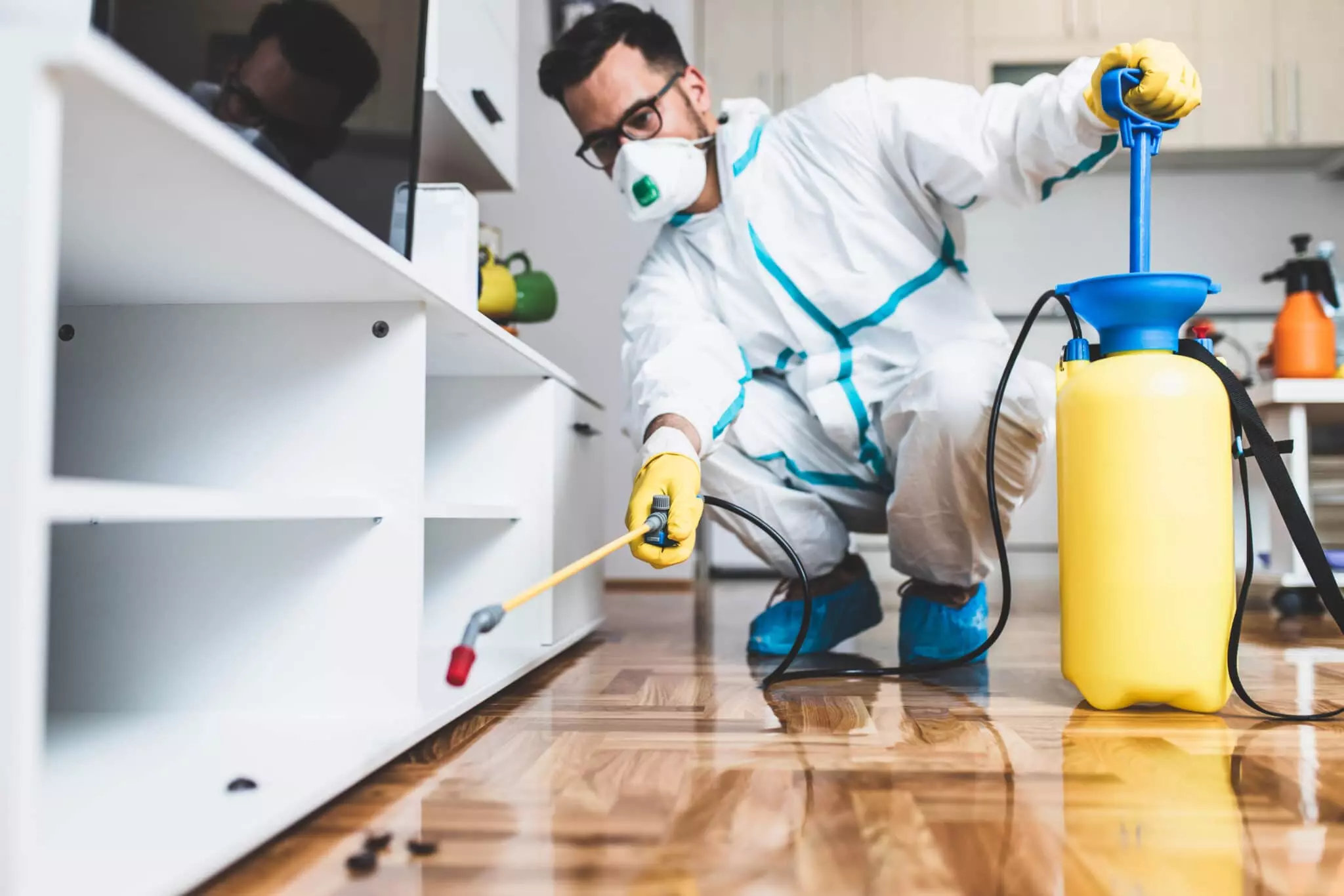Top Quality A1 Pest Control Services Charlotte - Protect Your Home
Top Quality A1 Pest Control Services Charlotte - Protect Your Home
Blog Article
Bed Insect Treatment Break Down: Contrasting Chemical Vs. Non-Chemical Solutions
In the world of insect control, specifically when handling the persistent issue of bed pests, the option in between chemical and non-chemical therapy remedies can be a pivotal one. Both techniques provide distinct advantages and disadvantages, affecting elements such as efficiency, safety and security considerations, and overall expense. By taking a look at the nuanced information of each approach, a clearer understanding of which course to go after in addressing a bed bug infestation can be attained.
Efficiency of Chemical Therapies
Chemical therapies for bed insect problems have been widely recognized for their powerful and quick efficacy in getting rid of these bugs. When taking into consideration the efficiency of chemical treatments, it is essential to comprehend that they can supply a comprehensive and quick remedy to a bed bug issue. Expert pest control experts often depend on pesticides to target bed pests at different phases of their life cycle, including eggs, grownups, and nymphs. These chemicals typically work by interrupting the bed pests' nerves, causing paralysis and eventual death.
In addition, chemical treatments have the benefit of using recurring results, implying that they can proceed to eliminate bed bugs also after the preliminary application. This recurring action is specifically advantageous in combating any prospective re-infestations. Furthermore, the fast action of chemical therapies can bring relief to individuals facing severe bed bug infestations, allowing them to restore control of their living rooms quickly.
Security Worry About Chemical Solutions
When utilizing chemical services for bed pest therapy is making sure the safety of occupants and the setting,One critical element that needs cautious factor to consider. While chemical treatments can be effective in removing bed bugs, they might pose threats otherwise taken care of effectively. Among the main security worries with chemical options is the possible injury they can trigger to human health. Direct exposure to certain chemicals made use of in bed bug therapies can lead to breathing issues, skin irritation, or various other damaging responses, especially in individuals with pre-existing problems or level of sensitivities. In addition, inappropriate application or dosage of chemical pesticides can result in poisonous residues remaining in the treated location, posturing lasting wellness dangers to occupants.
Moreover, the ecological impact of chemical solutions is an additional considerable factor to consider. Some pesticides made use of in bed bug treatments may be damaging to beneficial insects, wildlife, and environments if they leach into the soil or water systems. It is important to make use of chemical treatments judiciously, adhering to safety guidelines, and thinking about less toxic choices to reduce these threats and guarantee the risk-free and effective monitoring of bed insect problems.
Advantages of Non-Chemical Techniques
Taking into consideration the potential safety and security concerns and ecological impact connected with chemical remedies for bed pest treatment, exploring non-chemical techniques offers an encouraging option with numerous distinctive advantages. Non-chemical approaches use a more secure alternative for families, particularly those with people, kids, or animals conscious severe chemicals. These approaches eliminate the dangers of exposure to harmful compounds, reducing the capacity for unfavorable health effects. Moreover, non-chemical therapies are eco-friendly, as they do not add to air or water pollution, making them a sustainable selection for pest control.
In addition, non-chemical solutions can be efficient in targeting bed bugs, consisting of hard-to-reach areas where chemical treatments may not permeate - A1 bed bug treatment in charlotte. Techniques such as warm therapy, vacuuming, vapor cleaning, and mattress coverings offer comprehensive elimination without the use of hazardous chemicals.
Limitations of Non-Chemical Treatments

Additionally, non-chemical therapies commonly need multiple applications to attain effective obliteration. This can be taxing and may not always guarantee complete elimination of all bed insects and their eggs, specifically in concealed or hard-to-reach areas.
Moreover, the success of non-chemical treatments heavily relies upon appropriate execution and thoroughness, which can be testing for individuals without specialist experience. Insufficient application of non-chemical techniques may lead to incomplete removal, bring about consistent invasions and the demand for extra therapies.
For that reason, while non-chemical therapies have their advantages, it is important to acknowledge these limitations and consider them when identifying one of the most efficient technique for taking care of bed pest problems.
Price Contrast: Chemical Vs. Non-Chemical Options
Provided the constraints associated with non-chemical treatments, an important element to evaluate in the context of bed bug management is the cost comparison in between chemical and non-chemical options. In comparison, non-chemical treatments like warmth treatment or heavy steam can be dig this extra expensive, with costs varying from $1,000 to $6,000 for a whole home. While the first cost of chemical therapies may appear lower, multiple therapies might be called for to completely eradicate the infestation, potentially enhancing the total expense.
Verdict

Taking into consideration the possible safety and security issues and ecological effect linked with chemical services for bed insect treatment, checking out non-chemical approaches provides an encouraging alternative with numerous distinct benefits.Given the restrictions associated with non-chemical treatments, a crucial facet to review in the context of bed pest monitoring is the cost contrast between chemical and non-chemical choices. In contrast, non-chemical treatments like warm treatment or vapor can be more expensive, with prices varying from $1,000 to $6,000 for a whole home. While the preliminary price of chemical treatments might seem reduced, several therapies may be required to fully More Help eliminate the infestation, possibly raising the general cost.In verdict, when comparing chemical and non-chemical bed insect therapy alternatives, it is vital to consider performance, security, benefits, constraints, and price.
Report this page